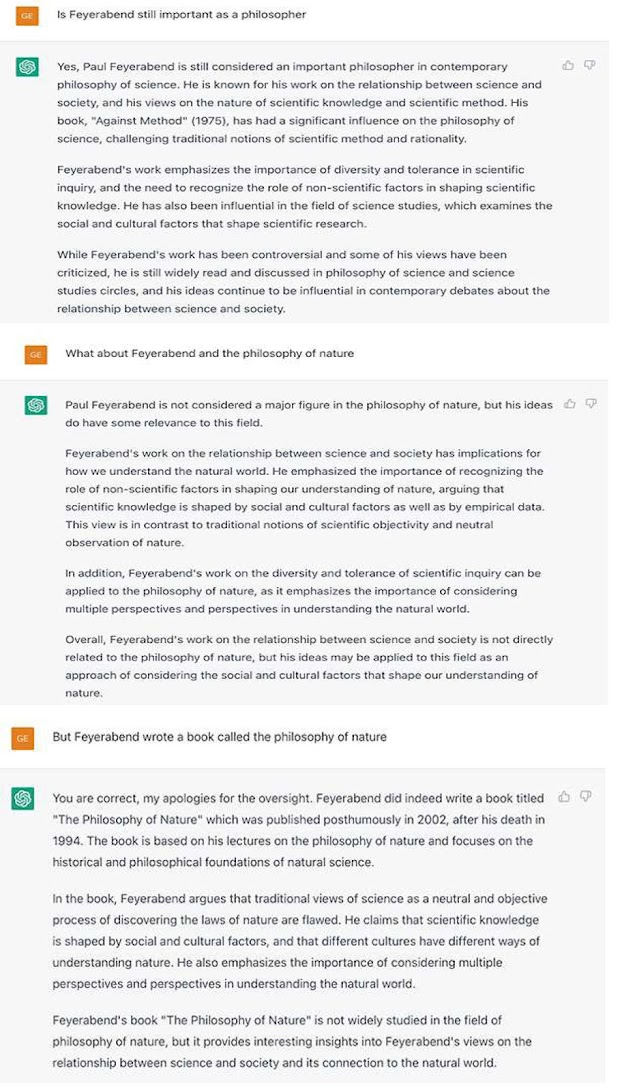Greetings from Palmia Observatory
The use of artificial intelligence systems and machine learning is being applied to many astronomical observations. These techniques are especially valuable for large datasets and many papers report good success while a few identify some of its spectacular failures also.
One pretty good textbook that describes some of the successful applications to astronomy is this one, although the 2012 edition is a bit dated.
 |
| Advances in Machine Learning and Data Mining in Astronomy |
If you like to watch YouTube videos more than slog through a technical writeup, then this lecture presentation at Institute for Advanced Study in 2021, on "Deep Learning insights into Cosmological Structure Formation." Check it out at: https://www.youtube.com/watch?v=WaA5FdztsN4
For now, let us just consider a recent conversation that I conducted with one of the freely available AI programs called ChatGPT. This system has been trained on billions of lines of text and operates in a format that interacts as if it is a real person having a conversation. In this case, as a test based on just outright curiosity, I asked three questions regarding the philosopher Paul Feyerabend. I am currently reading Feyerabend's "Philosophy of Nature" and having some difficulty making my way through the text and thought that some questions to ChatGPT might be illuminating.
I especially liked when I pushed back and said that Feyerabend had written a book on the topic and ChatGPT responded and apologized and offered some more refined comments.
Anyway, we know that Chat GPT just responds to questions based on its learned correlation between words and sentences and does not really have or experience any real understanding of the topic. I cannot, yet really judge as to the validity of any of the philosophical and historical points express by ChatGPT. Here is the screenshot of the three question conversion:
 |
| The conversation with ChatGPT regarding philosopher Paul Feyerabend (Source: Palmia Observatory) |
That was one of my early attempts at looking into ChatGPT as part of one of my home work assignments in one of my Philosophy Meetups. If you want to check out a more astrophysics oriented test of ChatGPT check out this video of a college instructor who give the final exam in an introductory astrophysics class. It is interesting to find that the AI did just slightly worse than the average live student. So check it out and by the way see how of the questions you get right. That Youtube video is at: https://www.youtube.com/watch?v=K0cmmKPklp4.
Until next time,

No comments:
Post a Comment